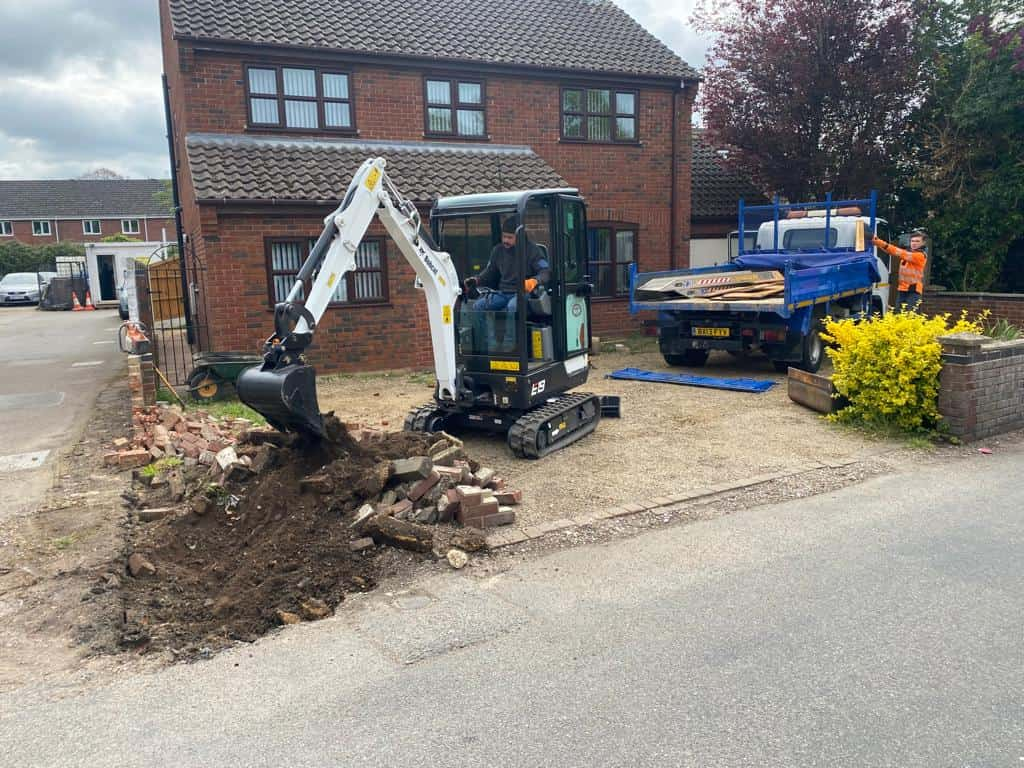Tarmac vs. Gravel Driveways for New Builds: Pros and Cons
Introduction: When choosing the right driveway for your new build, you have several options, each with its own advantages and disadvantages. Two popular choices for driveways are tarmac (also known as asphalt) and gravel. In this blog post, Resin Drives Tunbridge Wells will compare these two driveway materials to help you decide what best suits your needs and preferences.
Tarmac Driveways
Tarmac driveways, also called asphalt driveways, offer several benefits:
- Durability: Tarmac is known for its durability and longevity. When properly installed and maintained, it can last for decades without significant deterioration.
- Smooth Surface: Tarmac provides a smooth and even surface, making it ideal for vehicles and foot traffic. It offers excellent traction and is easy to clear of snow and debris.
- Quick Installation: Tarmac driveways can be installed relatively quickly compared to other materials. This can save you time during the construction process.
- Customisable: You can choose from various finishes, including coloured tarmac, to match your new build’s aesthetic.
- Resistant to Weeds: Tarmac is resistant to weed growth, reducing the need for frequent maintenance.
However, there are also some drawbacks to consider:
- Initial Cost: Tarmac driveways can be more expensive to install than gravel.
- Cracking: Tarmac can develop cracks and potholes over time, which may require maintenance and repairs.
- Environmental Impact: Tarmac is not as environmentally friendly as other options due to its reliance on petroleum-based materials.
Gravel Driveways
Gravel driveways have their own set of advantages and disadvantages:
- Affordability: Gravel driveways are typically more budget-friendly in terms of installation costs.
- Drainage: Gravel allows for excellent drainage, reducing the risk of puddles and water damage.
- Easy Repairs: If an area of the driveway becomes damaged, removing and replacing the affected gravel is relatively easy.
- Low Maintenance: Gravel driveways require minimal maintenance. Occasional raking and replenishing gravel are usually sufficient.
However, there are some downsides to gravel driveways:
- Weed Growth: Weeds can grow through the gravel, requiring regular weed control.
- Stability: Gravel driveways may not provide a surface as stable as a tarmac, particularly for vehicles with low ground clearance.
- Dust and Gravel Migration: Gravel driveways can produce dust and require periodic re-levelling or additional gravel to prevent migration.
- Less Aesthetically Versatile: Gravel may not offer the same range of aesthetic options as tarmac.
Conclusion: The choice between tarmac and gravel driveways for your new build ultimately depends on your budget, maintenance preferences, aesthetic considerations, and how you prioritise various factors. While tarmac offers durability and a smooth surface, gravel provides affordability and excellent drainage. Consider your needs and consult a professional to determine the best fit for your new build. Whether you opt for tarmac or gravel, Resin Drives Tunbridge Wells provides expert installation and guidance to create the perfect driveway for your property.
Call us on: 01892 481881
Click here to find out more about Resin Drives Tunbridge Wells
Click here to complete our contact form and see how we can help with your driveway needs.

